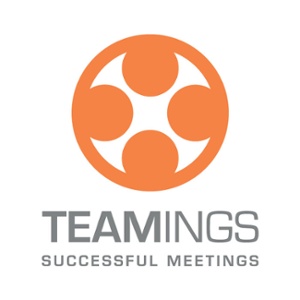Hybrid events and events are great tools for increasing ROI. A hybrid event uses online meeting tools to add a virtual component to a live event, allowing more people to attend. In fact, according to a study by the Meeting Professionals International Foundation, “90% of meeting professionals exceed their goals through hybrid events.”
Simply explained, fear. Fear, after all, is lack of experience. People fear the unknown. People fear what they don’t understand. Anyway you put it, hybrid events have yet to become the “go-to” format for meetings and events because most meeting planners fear something will go wrong when they undertake this new and exciting meeting format. One of our clients put it best, “I love our hybrid events. I just never did it before because I didn’t know how. It scared the hell out of me.” At Teamings, we’ve helped plan many successful hybrid events. In working with meeting planners and clients, I have found that there are three main barriers that meeting planners fear when thinking about taking on a hybrid event. Difficultly in selecting the right meeting technology vendor. Meeting planners are especially skilled in finding hospitality vendors. They can find the right city, the right hotel, the right caterer, etc. They know exactly how to work with these vendors to get the service that will meet the needs of their meeting or event. Because of their experience with hospitality vendors, meeting planners run into turbulence when navigating meeting technology selection. Hospitality is customer centered. They apologize and make concessions for their customers. Technology or “Software As A Service” (SAAS) vendors, are encased in a completely different culture. They are not customer centered, but product centered. In most cases, technology vendors are not willing to bend and concede. Their software is their service. They provide their features and you, as a meeting planner, are made to mold your meeting to fit their software. Without years of experience with these vendors, it’s hard for meeting planners to find SAAS companies willing to take a hospitable approach- willing to work with them to create an experience fitting the meeting. It’s difficult and unfamiliar territory. Managing two separate teams: The web team and the on-site team. Meeting planners are very skilled at managing on-site teams. The idea of managing an additional web team can seem daunting. This is a valid fear. In order for a hybrid event to run well, the web team and the on-site team need become a synergic event team, working in concert to create the hybrid event. Given the culture difference discussed above and probable lack of technological experience of the meeting planner, creating synergy between the two is a difficult task to pull off, even for the best event planner. Managing the pre and post meeting responsibilities associated with hybrid events can be overwhelming. Hybrid events require about three times more planning then a standard event. In addition to planning the on-site event in its entirety, the meeting planner must also plan for the web conference and then plan a way to synchronize the two. Planning a hybrid event involves many additional actions. For example: Post meeting, the planner of a hybrid event is met with more work. Hybrid events bring many opportunities for building digital assets. Producing and delivering those assets becomes another responsibility of the meeting planner. Finding and trusting a technology provider to help with this burden is difficult. (See item 1). Can a meeting planner really be expected to do all of this successfully? With a hybrid event, the workload is tripled. Plus, the meeting planner has to learn and vet a whole new industry. No wonder so many meeting planners shy away from hybrid events despite increased ROI. Really ambitious professionals can take it all on, but odds are the technological efforts will pull from the success of the actual in-person meeting. Something has to give. Meeting planners need extra support to make a hybrid event successfully. Teamings is in a unique position to help with this problem. With a background in hotels, hospitality and event planning, our team has spent 15 years emerged in both the SAAS industry and the hospitality industry. Not only can we help you find a technology vendor to fit your needs, but we can help you manage that vendor pre, day of and post. Let Teamings be the conduit between the virtual event and in-person event to help you create a synergic event team. Contact Teamings today. Call 866.278.9040.
Despite Increased ROI, Meeting Planners Fear the Unknown.

Hybrid events have many positive attributes;
Despite these positive features, most meeting planners have yet to take advantage of hybrid events. Why is this?

